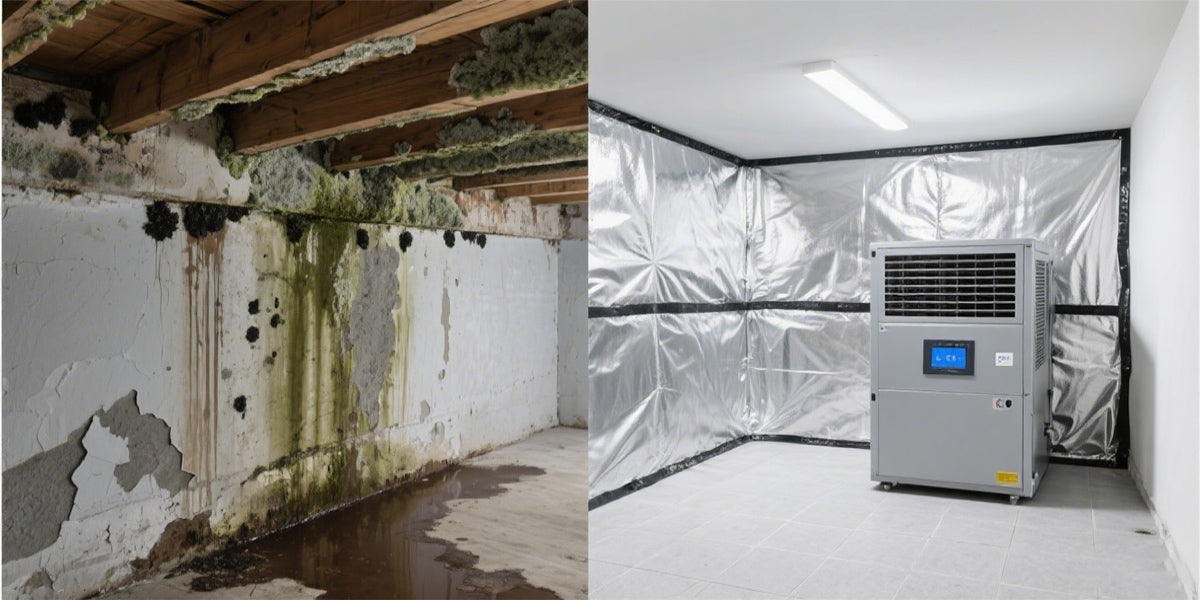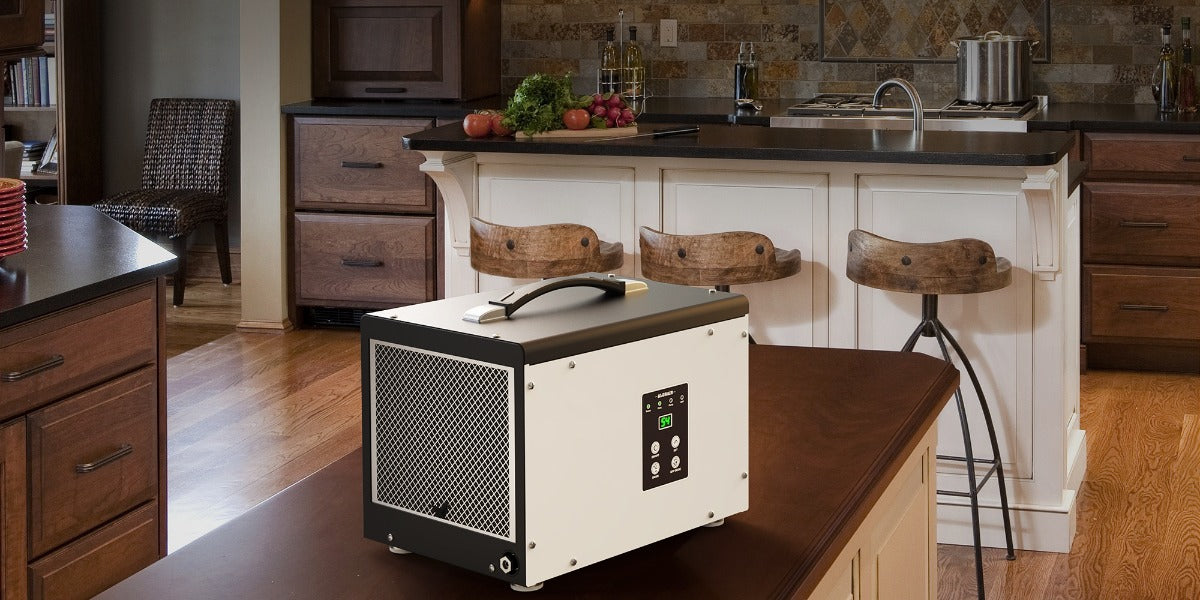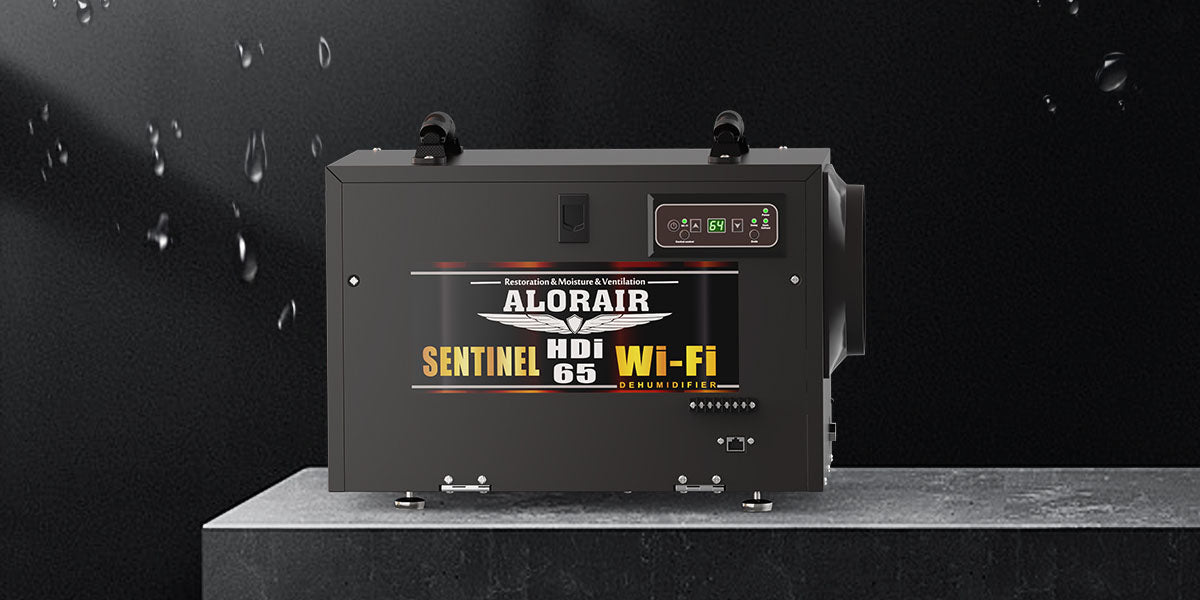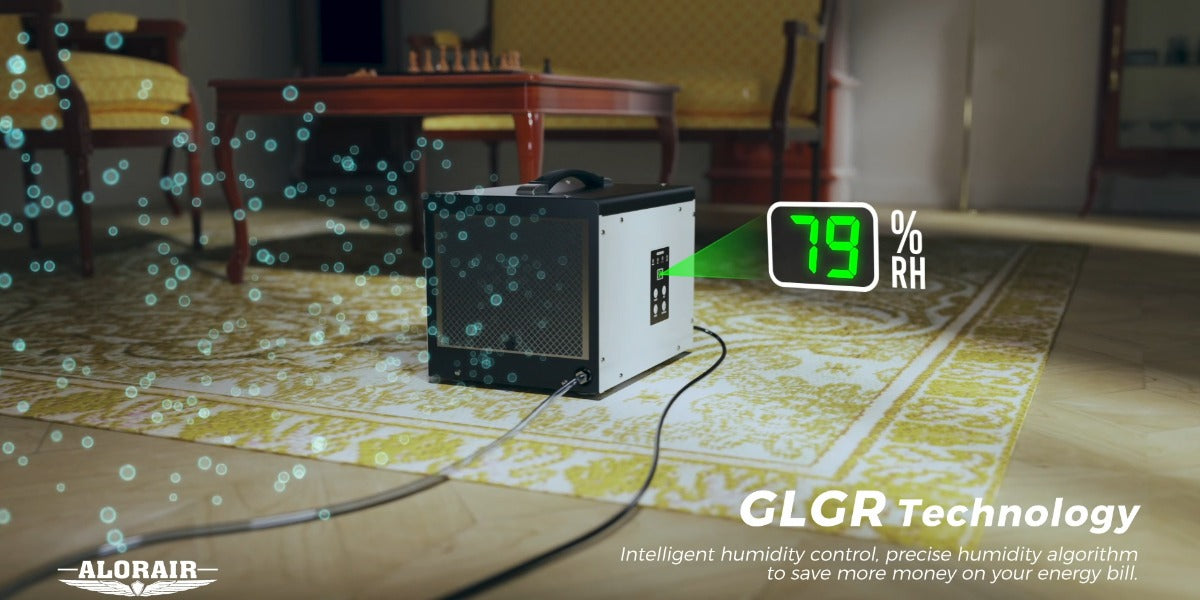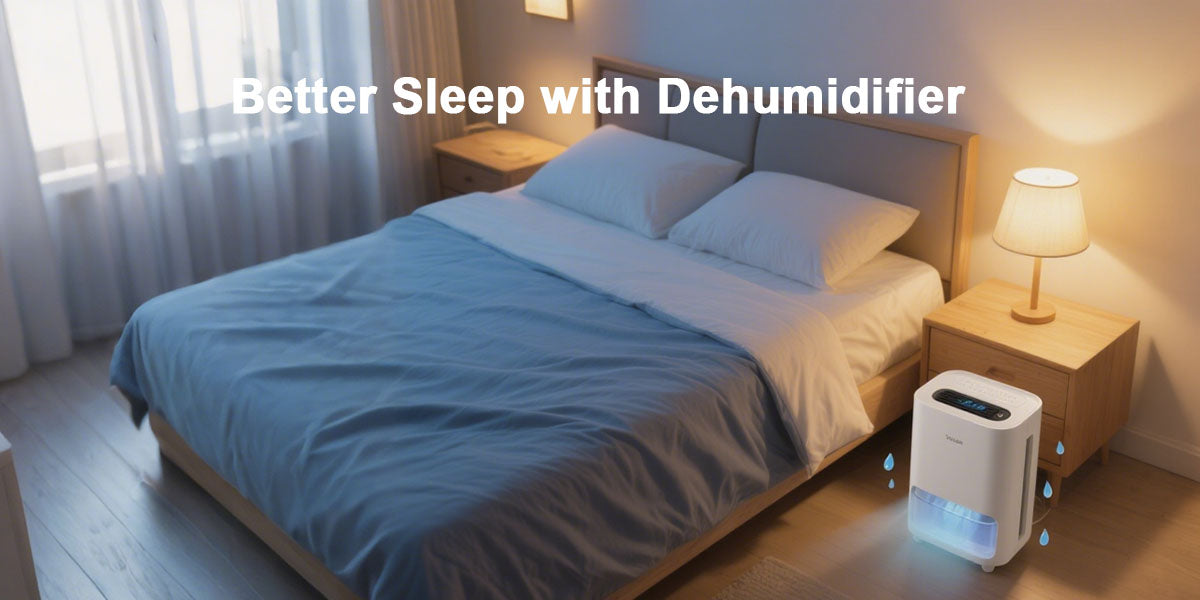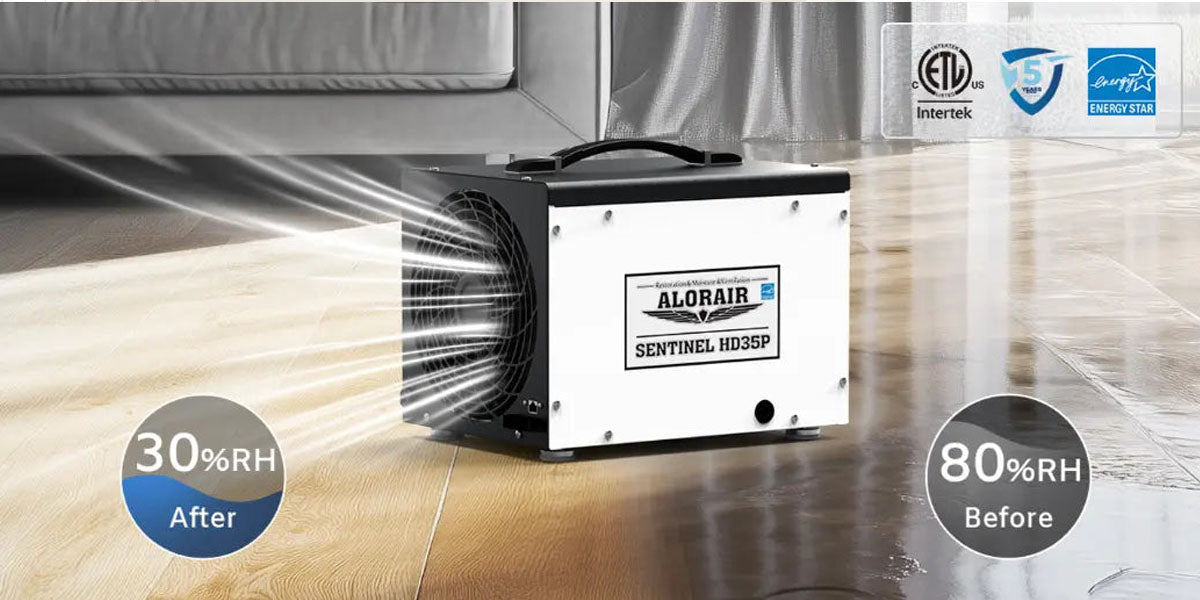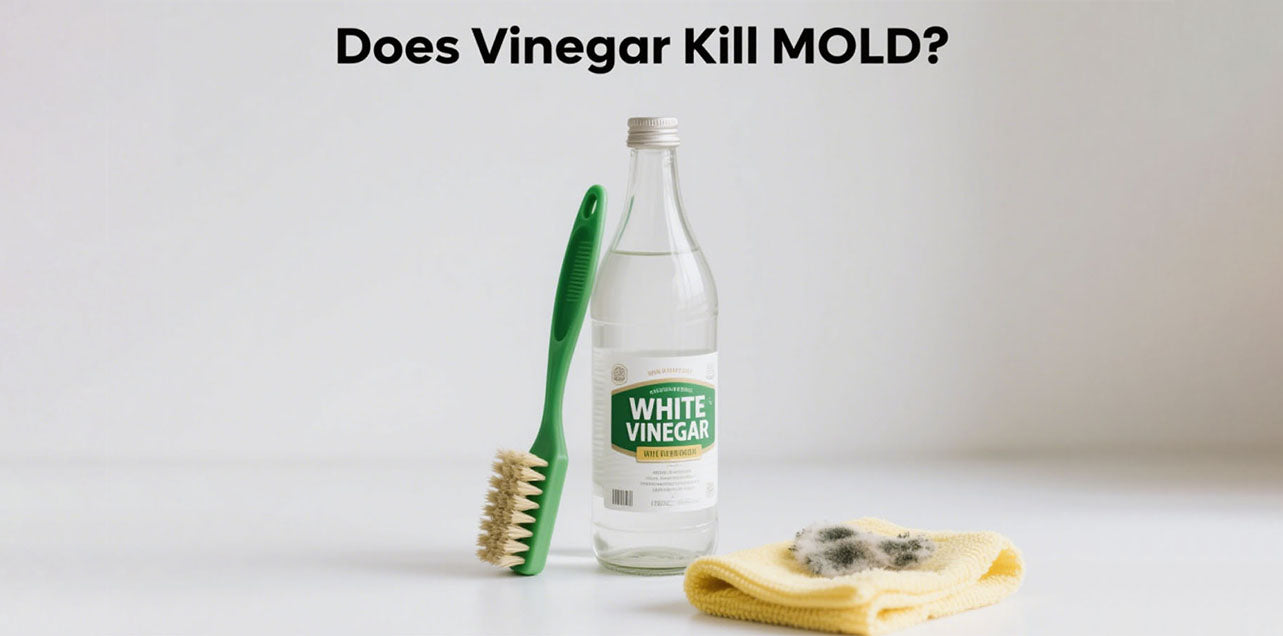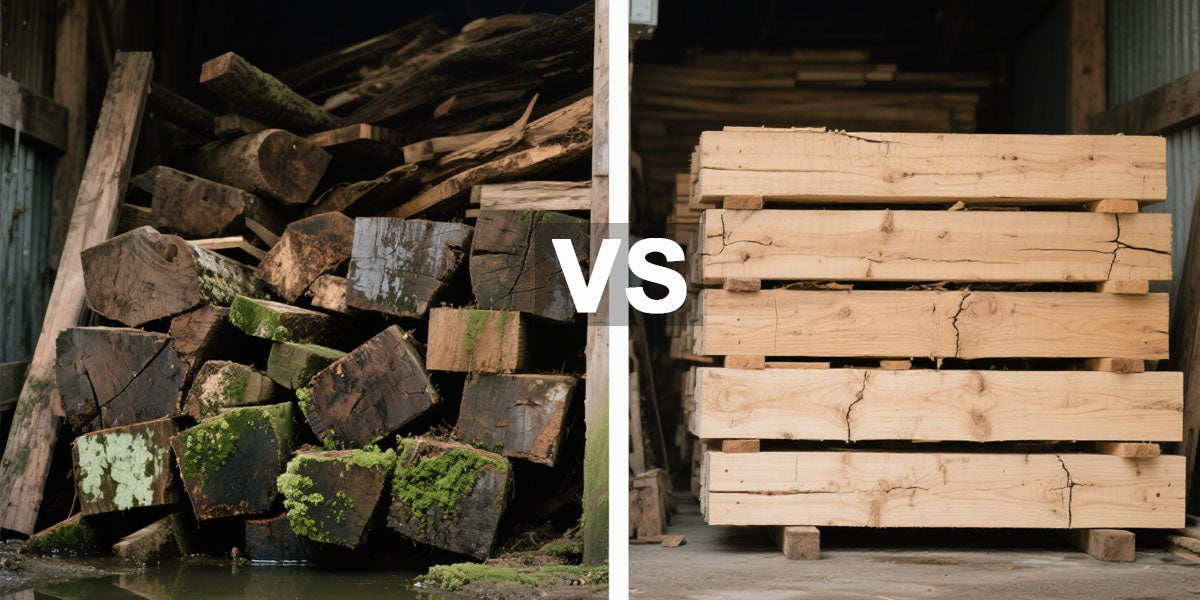Humidity control for infants can be one of the best ways to keep your little one safe and healthy. Both their respiratory and immune systems are still developing, making it more difficult for their bodies to fight back against foreign substances that might get into their bodies. Mold growth, dust mites, and allergens all impose a risk on a baby’s respiratory health. Fortunately, all of these issues can be controlled by managing indoor humidity levels.
Baby health and humidity go hand-in-hand, giving children the best environment to develop a stronger respiratory system for when they grow up. If you’ve wondered about the benefits of using a dehumidifier for babies, then look no further, because we have you covered.
Safe Humidity Levels for Babies

Some parents worry about a dehumidifier making their nursery too dry for their child’s sensitive skin. Fortunately, there’s an ideal humidity range that both hydrates your child’s skin, and helps prevent mold in your baby's room, as well as the rest of your home. Experts say that safe humidity levels for babies are levels between 30-50%. This is the recommended range to give your nursery safe and comfortable for your infant, especially in regions prone to high humidity and mold growth. If you’re concerned about measuring humidity levels, there’s no need to stress. Most dehumidifiers, like the ones offered here at AlorAir, come with humidity sensors to keep indoor spaces at the ideal humidity range, making these some of the best dehumidifiers for keeping your home and nurseries in top condition.
Humidity Control for Respiratory Conditions
For children with respiratory conditions such as asthma or allergies, a dehumidifier can be the best solution to keep your child comfortable and healthy. Maintaining optimal humidity levels may help manage their symptoms. Too much humidity can foster the growth of allergens and irritants, while overly dry air can contribute to dry throat and respiratory discomfort. Maintaining safe humidity levels for baby rooms is especially vital, as these are the groups the most susceptible to their environment. Whether a child has a respiratory condition or not, it’s a joy knowing the smallest members of the family can breathe easier in your home.
Environmental Control
A dehumidifier does more than humidity control for infants, it helps to control the temperature of their living space, and even filters out particles in the air that can lead to health complications. Single-room nursery dehumidifiers are a good option, though this neglects the rest of the house, where particles can just as easily gather and mold can grow. In our expert opinion, the best way to prevent mold in a baby's room is to keep the entire house safe and healthy with air duct dehumidifiers. Spores get caught in the dehumidifier’s filter, and without an ideal temperature or humidity level, molds have little chance to take root.
Choosing the Best Dehumidifier for Your Baby
If a dehumidifier unit is too big, even if it can detect the humidity levels of a room, it can still make the air in your house too dry. This will lead to discomfort for you and your little ones. Plus, you don’t want to spend more money on a nursery dehumidifier that’s bigger than what you need, on top of making the air dry, it will end up sucking up too much power to do the same job. That’s why you should look over dehumidifier specifications, and look for recommended square foot sizes to find a unit that approximately matches the size of your home. When in doubt, always go a little bit bigger to ensure it effectively dehumidifies your house.
Maintaining your Dehumidifier to Maximize Effectiveness
To get the most out of your dehumidifier, go with your feelings. It’s like testing if something’s too hot or cold for your baby, if the air feels slightly too dry or damp for you, there’s a good chance it’s more so for your little bundle of joy. Adjust the dehumidifier settings as needed to maximize comfort, you’ll know you’re at that optimal 30 to 50% humidity level when it feels right. The body knows best. Keep in mind that humidity levels will change throughout the year as outside temperatures rise and fall, so keep in mind that a dehumidifier is like a thermostat, some tweaks are needed to help keep your child’s lungs healthy and comfortable as the seasons change.
A dehumidifier that doesn’t go through regular maintenance won’t properly do its job. Dust and other allergens could easily get through. Plus, the dehumidifier will pull less water out of the air while using up more electricity. Not to mention that an unkept dehumidifier can become a hub for bacteria and mold growth, contributing to the very problems it is supposed to prevent. Fortunately, there are two easy ways to maintain your dehumidifier that will also help to expand its lifespan. The first solution is to regularly clean out the dehumidifier and wipe down any damp surfaces. Second is to change the filter whenever it looks too dark. That’s it, those two things will make a world of difference and will help you keep your house safe for your little one.
Our Wrap-up
There are numerous benefits of using a dehumidifier for babies, and we could go on about them if we had more time. But if there’s one takeaway, it’s that baby health and humidity are something that parents should be mindful of. A dehumidifier is not only important for keeping a child’s respiratory and immune systems safe from pathogens, it allows children to feel comfortable in their own homes. Comfort allows children to focus more on exploring the world around them, giving them the best environment to grow up in.
Absolutely, the importance of a dehumidifier for a baby's well-being cannot be overstated. It's not just about maintaining an environment that is less hospitable to harmful pathogens, but also about creating a living space where your child feels most comfortable. The significance of a dehumidifier extends beyond the tangible and immediate effects on health; it indirectly contributes to the holistic development of your child.






